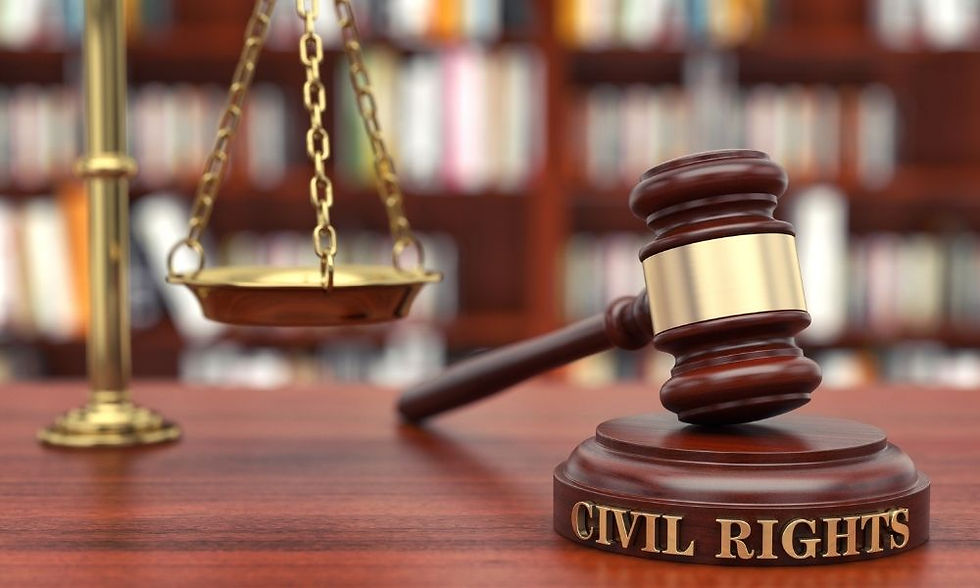How to Choose the Right Civil Lawyer for Your Needs
- Raynal Kapadia
- Aug 31, 2025
- 3 min read
Table of Contents
Introduction
Why Civil Disputes Require Strategic Legal Action
The cost of weak legal representation
Advantages of experienced litigators
The Civil Litigation Process Explained
From filing to final judgment
Negotiation vs trial strategy
Selecting the Best Civil Dispute Lawyer
Qualities of a top performer in court
Importance of transparent fees
Conclusion
FAQs

Introduction
When you are involved in a civil dispute, your choice of lawyer can determine the success or failure of your case. Civil law covers a wide range of disputes, including contract breaches, property conflicts, and business disagreements. Choosing the right civil litigation lawyer ensures that you have the experience, strategy, and negotiation skills necessary to protect your rights and achieve a favourable outcome.
If you are looking for expert legal assistance, Kapadia Legal offers professional support in civil and commercial litigation matters.
Why Civil Disputes Require Strategic Legal Action
The cost of weak legal representation
Hiring the wrong lawyer can lead to poor case preparation, missed deadlines, and weak arguments in court. This can result in losing a case you could have won, paying significant compensation, or suffering long-term reputational damage. Civil disputes often involve complex legal procedures, and without a strategic approach, you could waste both time and money.
Advantages of experienced litigators
An experienced civil dispute lawyer brings more than just legal knowledge. They have a proven track record of courtroom success, deep understanding of procedural rules, and refined negotiation skills. They can anticipate opposing arguments, build a strong case strategy, and negotiate favourable settlements before the matter even reaches trial.
The Civil Litigation Process Explained
From filing to final judgment
The civil litigation process starts with an initial consultation, followed by filing the necessary legal documents in court. Then comes the evidence-gathering stage, which includes witness statements, discovery, and expert reports. Pre-trial motions may resolve some issues before the case moves to a full trial. Finally, the judge or jury delivers a verdict, which can be appealed if necessary.
Negotiation vs trial strategy
Not every civil dispute needs to end in a lengthy court trial. Skilled lawyers often explore mediation or arbitration to reach a quicker resolution. A lawyer with strong negotiation skills can save you significant time, stress, and expense, while still protecting your legal rights. However, when negotiation fails, having a lawyer who can confidently present your case in court is essential.
Selecting the Best Civil Dispute Lawyer
Qualities of a top performer in court
When choosing your lawyer, consider their communication skills, track record in similar cases, and ability to think strategically under pressure. A top-performing civil lawyer will be thorough in case preparation, persuasive in argument delivery, and quick to adapt to unexpected developments during trial.
Importance of transparent fees
Legal costs can escalate quickly, especially in complex civil disputes. Choose a lawyer who provides clear fee structures and explains all potential expenses before starting work. Transparent billing builds trust and helps you avoid unexpected financial surprises during the case.
Conclusion
Civil disputes can have lasting financial, emotional, and professional consequences. By choosing the right civil lawyer, you gain a strategic partner who can navigate complex legal processes, negotiate effectively, and fight to protect your best interests. A careful selection process based on skill, experience, and transparency, will greatly improve your chances of success.
If you are currently facing a civil dispute, explore professional guidance from Kapadia Legal for expert representation and tailored legal strategies.
FAQs
Q1: What is the difference between a civil lawyer and a criminal lawyer?
Ans. A civil lawyer deals with disputes between individuals or organisations, such as contract breaches or property issues, while a criminal lawyer defends individuals accused of crimes.
Q2: How long does a civil case take?
Ans. The duration varies depending on the complexity of the case. Some matters resolve in months, while others may take several years if they go to trial.
Q3: Can I settle a civil dispute without going to court?
Ans. Yes, many disputes are resolved through negotiation, mediation, or arbitration without a formal court trial.
Q4: What documents should I prepare before meeting a civil lawyer?
Ans. Bring any contracts, emails, letters, receipts, and other evidence related to your dispute. This will help your lawyer understand the case quickly.
Q5: How do I know if my lawyer is experienced enough?
Ans. Check their past case results, client testimonials, and years of practice in civil litigation.



Comments